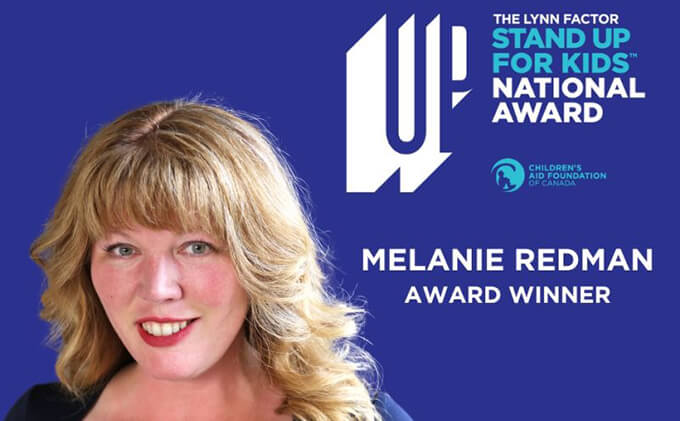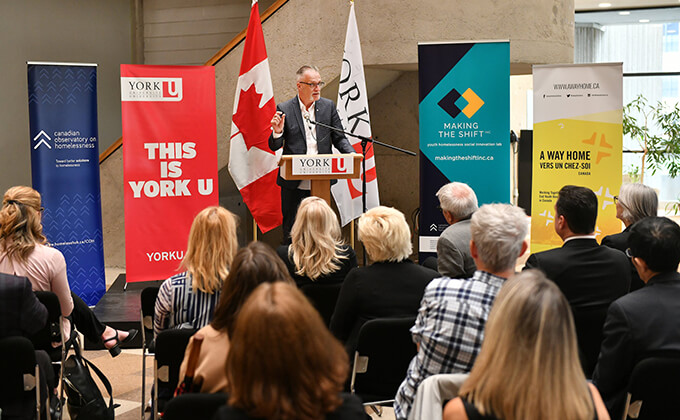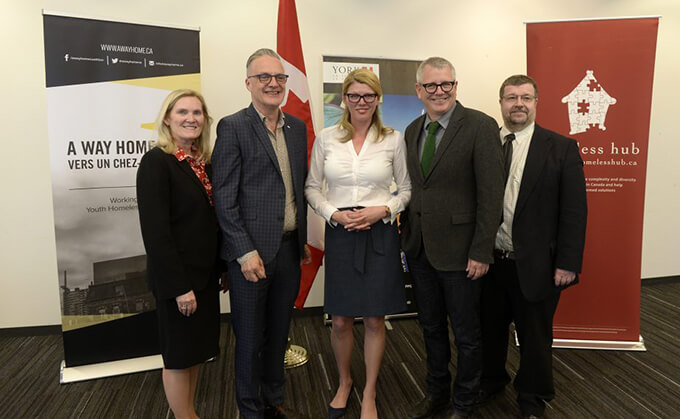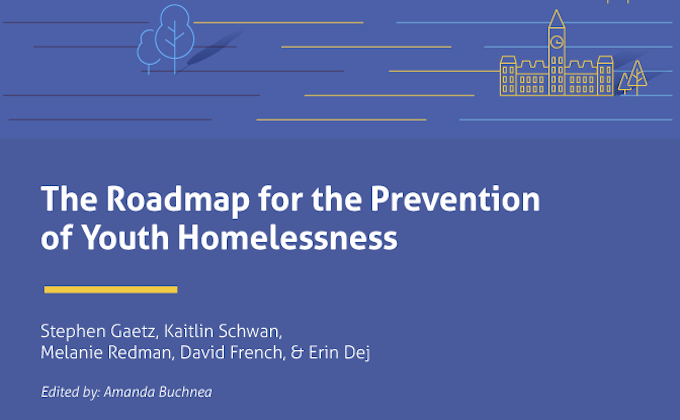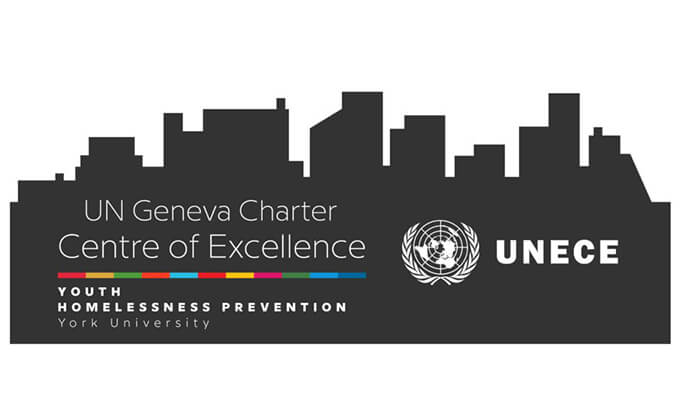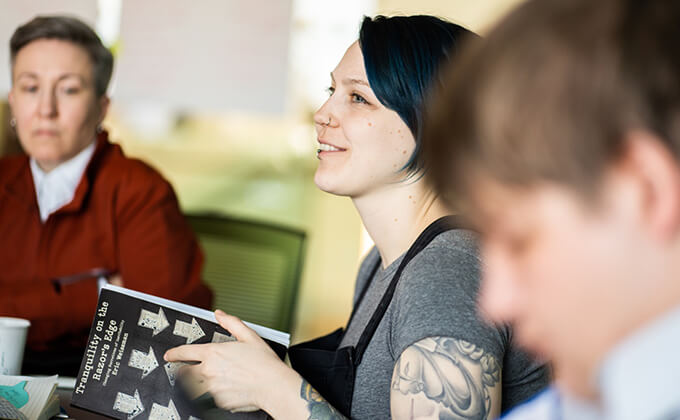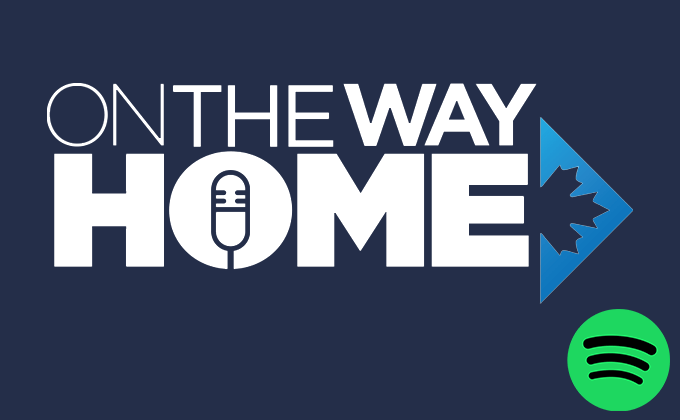Melanie Redman
A Way Home Canada
Toronto, ON
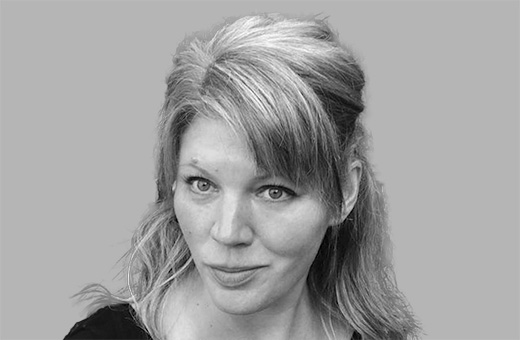
Sector Impact
Children & Youth
Human Rights & Equality
REIMAGINING SOLUTIONS TO YOUTH HOMELESSNESS
The Challenge: Every night, 6,000 young people in Canada have nowhere safe to sleep. These kids are at increased risk for exploitation, violence, victimization, and abuse. And the longer they stay on the streets, the worse their prospects become. We’re so focused on responding to the immediate crises of youth homelessness, though, that we’ve neglected a key strategy in tackling it permanently.

The Solution: With A Way Home Canada, Melanie Redman is shifting the conversation and strategy around youth homelessness from reaction to prevention. Rather than “managing” youth homelessness through emergency services, A Way Home takes a proactive, collective, evidence-driven approach that focuses on improving outcomes for young people and their families — by making sure they don’t become homeless in the first place.
A preventive approach to youth homelessness
Solving youth homelessness won’t happen by providing more and better shelters, soup kitchens, or transitional housing. It’ll happen by preventing kids from becoming homeless in the first place.
That’s the simple, yet profound, premise behind A Way Home Canada, a national coalition that’s reimagining solutions to youth homelessness through transformations in policy, planning, and practice. Ashoka Fellow Melanie Redman is AWH’s cofounder, president, and CEO.
Preventing youth homelessness — not to mention homelessness writ large — says Melanie, requires creativity, experimentation, and measurement. “We want evidence to drive all our solutions.” To that end, AWH has teamed up with the Canadian Observatory on Homelessness at York University to create the Making the Shift (MtS) Youth Homelessness Social Innovation Lab, which is a Government of Canada Research Tri-Council Networks of Centres of Excellence. In 2021, Making the Shift also received the designation as a Geneva UN Charter Centre of Excellence. The lab, says Melanie, is continually trying, innovating, failing — and succeeding — in real time with the goal of building up a solid knowledge base of solutions to prevent homelessness.
AWH has also created the Roadmap for Ending Youth Homelessness, a conceptual framework that defines and provides practical examples of different prevention strategies, as well as who’s responsible at the systems level for each intervention and how they can be part of the solution. The framework is part of AWH’s holistic approach, which recognizes that preventing youth homelessness is a collective effort that requires breaking down the silos between key actors — including young people with lived experience of homelessness.
“When we consult with these youth, they can list, for every stage of their journey into homelessness, multiple interventions that would have helped them and their families stop that trajectory. And so, our focus is very clear. We need to provide wraparound supports and interventions, for as long as necessary, to bolster young people and their families and stop that slide into homelessness. And for those who do end up homeless, the goal is to get them out, and then prevent them from ever falling into that situation again.”
AWH Canada has sparked an international movement, with branches in the United States (launched at the White House in 2016), Australia, the UK, and several European countries. This international network, says Melanie, “is a wonderful platform for knowledge exchange. We can look at see what jurisdictions around the world are doing, and adapt those ideas for communities and contexts.” She cites Wales’s “duty to assist” mandate, which enshrines public agencies to work together to take fulsome action within a certain timeframe once they become aware of a young person facing homelessness.
“As a result, homelessness has dropped dramatically. So how can we adopt that duty to assist in Canada — and how might we shift it to a duty to prevent? It’s exciting.”
